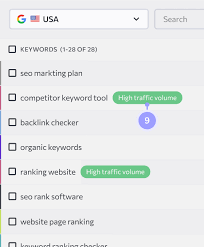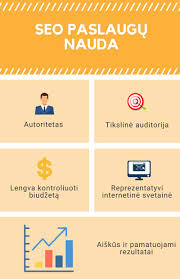Unlocking Success: Mastering Website Keyword Ranking Strategies
The Importance of Website Keyword Ranking
Website keyword ranking plays a crucial role in the success of any online business or website. Keywords are the foundation of search engine optimisation (SEO) and directly impact how well your website ranks in search engine results pages (SERPs).
What is Website Keyword Ranking?
Website keyword ranking refers to the position of your website in search engine results for specific keywords or phrases. When a user enters a query into a search engine, the search algorithm scans through millions of web pages to deliver the most relevant results.
Why is it Important?
Having a high keyword ranking means that your website is more likely to appear at the top of search results when users search for relevant terms. This visibility can drive organic traffic to your site, increase brand awareness, and ultimately lead to more conversions and sales.
How to Improve Keyword Ranking
Improving your website’s keyword ranking requires a strategic approach to SEO. Here are some key steps you can take:
- Keyword Research: Identify relevant keywords that your target audience is searching for.
- On-Page Optimisation: Optimise your website’s content, meta tags, and URLs with targeted keywords.
- Quality Content: Create high-quality, engaging content that incorporates your chosen keywords naturally.
- Backlink Building: Acquire backlinks from reputable websites to boost your site’s authority and credibility.
- Regular Monitoring: Track your keyword rankings regularly and make adjustments as needed based on performance.
The Role of Search Engines
Search engines like Google use complex algorithms to determine website rankings based on factors such as relevance, authority, and user experience. By understanding these algorithms and optimising your site accordingly, you can improve your keyword ranking over time.
In Conclusion
In today’s competitive online landscape, achieving a high website keyword ranking is essential for driving traffic and growing your business. By implementing effective SEO strategies and staying informed about industry trends, you can enhance your website’s visibility and reach a wider audience online.
Top 6 Tips for Enhancing Your Website’s Keyword Ranking
- Perform keyword research to identify relevant and high-traffic keywords for your website.
- Optimize your website content by including the chosen keywords in titles, headings, and throughout the text.
- Create high-quality and engaging content that is valuable to your target audience.
- Improve website loading speed as faster websites tend to rank higher in search engine results.
- Utilize meta tags effectively by including keywords in meta titles and descriptions.
- Regularly monitor and analyse keyword rankings using tools like Google Analytics or SEMrush.
Perform keyword research to identify relevant and high-traffic keywords for your website.
Performing thorough keyword research is a fundamental step in enhancing your website’s keyword ranking. By identifying relevant and high-traffic keywords specific to your niche or industry, you can effectively target your audience and improve your website’s visibility in search engine results. Understanding the search terms that potential visitors use allows you to tailor your content and SEO strategies to attract more organic traffic and ultimately boost your online presence.
Optimize your website content by including the chosen keywords in titles, headings, and throughout the text.
To enhance your website keyword ranking, it is crucial to optimise your website content strategically. Incorporating the selected keywords in titles, headings, and throughout the text not only improves the relevance of your content but also signals to search engines the key topics your website covers. By seamlessly integrating these keywords into different elements of your content, you can boost your chances of ranking higher in search engine results and attracting organic traffic to your site.
Create high-quality and engaging content that is valuable to your target audience.
Creating high-quality and engaging content that provides value to your target audience is a fundamental tip for improving website keyword ranking. By producing content that is relevant, informative, and tailored to the needs of your visitors, you not only enhance user experience but also increase the likelihood of ranking higher in search engine results. Search engines reward websites that offer valuable content by boosting their visibility and authority, making it essential to focus on creating compelling material that resonates with your audience and aligns with your chosen keywords.
Improve website loading speed as faster websites tend to rank higher in search engine results.
Improving your website loading speed is a crucial tip for enhancing website keyword ranking. Studies have shown that faster websites have a higher likelihood of ranking well in search engine results pages. Search engines like Google consider loading speed as a key factor in determining user experience, and websites that load quickly are often rewarded with higher rankings. By optimising your website’s loading speed, you not only improve user satisfaction but also increase the chances of attracting more organic traffic and boosting your overall search engine visibility.
Utilize meta tags effectively by including keywords in meta titles and descriptions.
To enhance your website keyword ranking, it is crucial to utilise meta tags effectively by incorporating relevant keywords in both meta titles and descriptions. Meta tags play a significant role in informing search engines about the content of your web pages. By strategically placing keywords in meta titles and descriptions, you can improve the visibility of your site in search engine results pages (SERPs) and attract more organic traffic. This simple yet powerful tip can help boost your website’s search engine optimisation (SEO) efforts and increase the likelihood of reaching your target audience online.
Regularly monitor and analyse keyword rankings using tools like Google Analytics or SEMrush.
Regularly monitoring and analysing keyword rankings is a crucial tip for improving your website’s performance in search engine results. By utilising tools such as Google Analytics or SEMrush, you can gain valuable insights into how your chosen keywords are performing and make informed decisions to optimise your SEO strategy. Tracking keyword rankings allows you to identify trends, measure the effectiveness of your efforts, and adjust your content and optimisation techniques accordingly to enhance your website’s visibility and attract more organic traffic.






